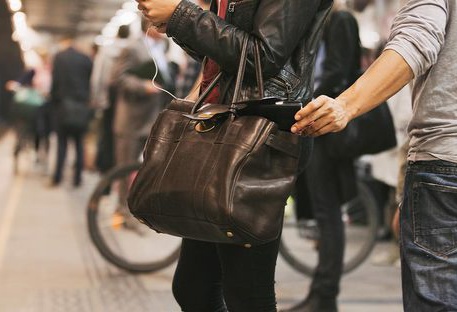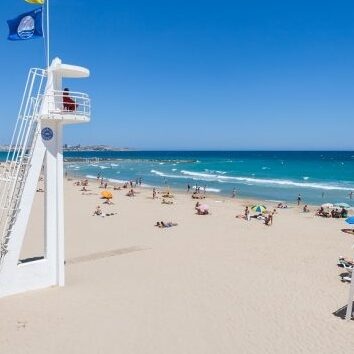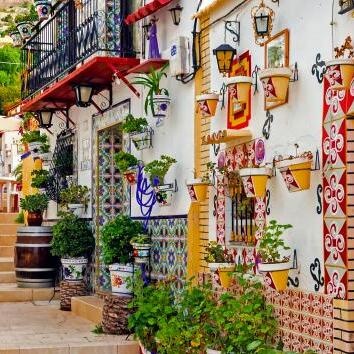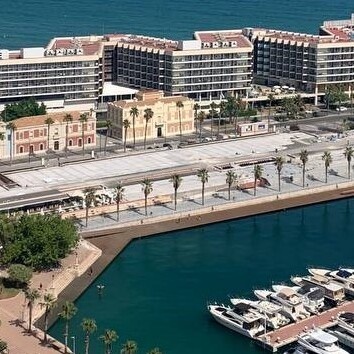
Common Theft Scenarios in Spain: How Travelers Can Avoid Them
Spain, with its rich history, vibrant culture, and stunning landscapes, is a favorite destination for travelers worldwide. However, like any popular tourist destination, it has its share of petty crime, particularly theft. Spain occupies one of the first places in Europe in terms of the level of theft. This high rate of theft is largely due to the fact that petty theft is considered an administrative violation rather than a criminal offense. As a result, thieves are often released even when they are caught, which encourages repeat offenses. Barcelona is the city with the most widespread cases of robbery. The lenient consequences for petty theft contribute significantly to the high number of incidents. Being aware of common theft scenarios and knowing how to avoid them can help ensure a memorable and safe Spanish adventure.
Pickpocketing: The Classic Threat
Pickpocketing is one of the most prevalent forms of theft in Spain, particularly in its most vibrant cities such as Barcelona and Madrid. This type of theft is characterized by stealth and distraction, with thieves exploiting crowded environments to surreptitiously lift personal belongings from unsuspecting victims. Since many people consider Barcelona to be the capital of pickpocketing, it is crucial to be aware of the hotspots where this type of crime is especially common.
Hotspots for Pickpocketing in Barcelona
- La Rambla: This iconic street, bustling with tourists and street performers, is a prime spot for pickpockets. The crowds and distractions create the perfect environment for thieves to operate unnoticed. Be particularly cautious around the busy areas near Plaça de Catalunya and the Columbus Monument.
- Gothic Quarter (Barri Gòtic): The narrow, winding streets of this historic neighborhood are a maze where pickpockets can easily blend in. Popular attractions like the Barcelona Cathedral and the Plaça Reial draw large crowds, making them hotspots for theft.
- El Raval: Adjacent to the Gothic Quarter, El Raval is known for its vibrant nightlife and cultural diversity. However, the high foot traffic and busy nightlife scene also attract pickpockets. Keep an eye on your belongings, especially in the evenings.
- Sagrada Família: As one of Barcelona’s most famous landmarks, the Sagrada Família attracts thousands of visitors daily. Thieves often target tourists distracted by the awe-inspiring architecture and the need to capture the perfect photo.
- Park Güell: This colorful park designed by Gaudí is another major tourist attraction where pickpockets operate. The expansive area and the focus on the stunning views provide ample opportunities for thieves to strike.
- Beaches (Barceloneta and Bogatell): The beaches of Barcelona are not just popular for sunbathing and swimming; they are also known spots for pickpockets. Thieves often take advantage of tourists relaxing and leaving their belongings unattended while they enjoy the sea.
- Public Transport (Metro and Buses): Barcelona's metro and bus systems are efficient but often crowded, particularly during rush hours. Pickpockets thrive in these conditions, where close proximity to passengers makes it easier to steal wallets, phones, and other valuables.
Techniques and Tactics
Pickpockets often work in pairs or groups, using one person to create a distraction—such as asking for directions, spilling something on you, or causing a commotion—while another does the stealing. They might also bump into you, use crowded conditions to press up against you or employ sudden movements to distract and confuse you. Skilled pickpockets can open zippers, cut bag straps, or slip their hands into pockets without being noticed.
The Flower Ladies: This common scam involves a seemingly kind woman offering you a flower, often implying it’s a gift. As you accept or decline the flower, another accomplice may use this moment of distraction to pick your pocket. Sometimes, the flower lady might also demand money for the flower, causing further distraction.
The Pigeon Poop or Stain Trick: In this scenario, someone will spill a liquid on you, claiming it’s bird droppings or another stain. They will then offer to help clean you up, using the opportunity to get close and steal from you while you're distracted and disoriented.
To avoid falling victim to pickpockets, keep your valuables in a secure, zipped bag and avoid placing wallets or phones in back pockets. Be particularly vigilant in crowded areas, and consider using anti-theft bags with slash-proof straps and RFID-blocking compartments. When using public transportation, keep your bag in front of you and hold it with both hands. In crowded places, such as metro stations or popular tourist spots, stay alert and avoid being too absorbed in your phone or camera. If you feel a sudden bump or push, check your belongings immediately, as this could be a pickpocket tactic.
Bag Snatching: Quick and Opportunistic
Bag snatching is another prevalent crime in Spain. Thieves on motorcycles or bicycles often grab bags from pedestrians, especially in less crowded areas or while you're distracted, such as when checking a map or taking photos.
To protect yourself from bag snatchers, carry your bag across your body rather than over one shoulder. Keep a firm grip on your bag and avoid displaying expensive items that might attract attention. When dining at outdoor cafes, loop your bag strap around your chair leg to make it harder for thieves to grab.
Hotel Room Theft: A False Sense of Security
While hotels may seem like safe havens, thefts from hotel rooms are not uncommon. Unscrupulous individuals can gain access to rooms and steal valuables left in plain sight.
To safeguard your belongings, always use the hotel safe for valuables like passports, cash, and electronics. Ensure your room door is securely locked, and never leave the door propped open, even for a short time. Consider bringing a portable door lock or alarm for added security.
ATM Fraud: A Technological Trap
ATM fraud is a growing concern in Spain. Skimming devices, which capture card details, and hidden cameras that record PIN numbers are commonly used by thieves to gain access to your bank accounts.
To avoid falling victim to ATM fraud, use ATMs located inside banks or well-lit, busy areas. Inspect the ATM for any signs of tampering before inserting your card, and cover the keypad with your hand while entering your PIN. Regularly monitor your bank statements for any unauthorized transactions.
Beach Theft: Relaxation Risks
Spain's beautiful beaches are perfect for relaxation, but they can also be hotspots for theft. Thieves take advantage of sunbathers who leave their belongings unattended while swimming.
When visiting the beach, bring only essential items and leave valuables at your hotel. Use a waterproof pouch to keep your phone and money with you while swimming, or take turns with your travel companions to watch over your belongings. Consider using a beach safe or anti-theft beach bag to store your items securely. Another effective strategy is to position yourself near lifeguard stations or other populated areas where there are more people around to notice suspicious activity. Avoid secluded spots on the beach, as these are more attractive targets for thieves. If you plan to participate in water activities, look for facilities that offer lockers or secure storage options. Many popular beaches have rental lockers where you can store your belongings safely while you enjoy the water.
Fake Police Officers: An Unusual Deception
In some areas of Spain, particularly in tourist hotspots, scammers pose as police officers to trick travelers into handing over their money or valuables. They may claim they need to check your currency for counterfeit bills or ask for identification in a confusing or intimidating manner.
To avoid this scam, always ask for identification from anyone claiming to be a police officer. Genuine officers will not hesitate to show their badge and provide identification. If you're unsure, suggest moving to a more public place or contacting local authorities for verification.
Restaurant Scams: The Unexpected Bill
Dining out is a highlight of any trip to Spain, but be wary of restaurant scams. Some establishments may add extra items to your bill, charge inflated prices for tourists, or bring unordered dishes to your table and then demand payment.
To protect yourself, always check the menu and prices before ordering. Politely decline any unordered items and carefully review your bill before paying. If you encounter discrepancies, address them with the staff calmly but firmly.
Traveling to Spain can be an incredible experience filled with unforgettable memories. By staying informed about common theft scenarios and taking proactive steps to protect yourself, you can enjoy all that this beautiful country has to offer without falling victim to petty crime. Safe travels!








